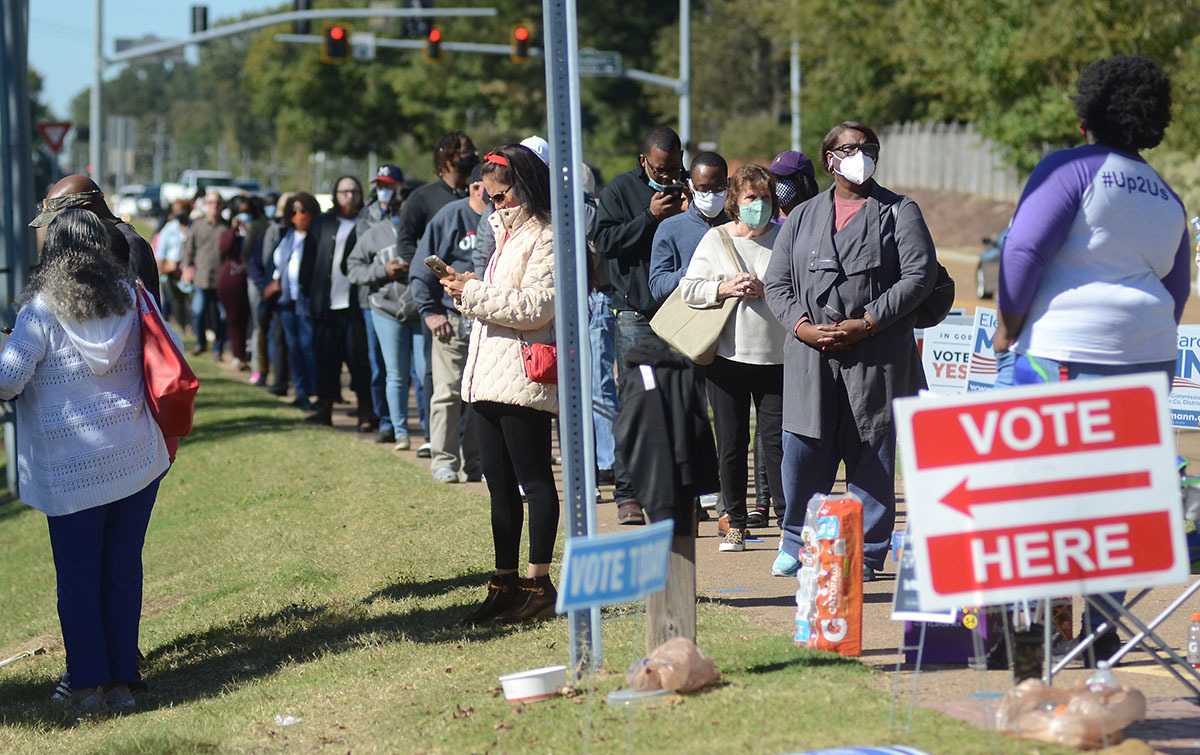Present to Past
Legislating Rights

TodayRestricting Voting Rights
Mississippi Residents Waiting to Cast their Vote, 2020
The Supreme Court & The Vote
The landmark Voting Rights Act of 1965 was seen as a victory after decades of violent disenfranchisement under Jim Crow and violations of the 15th and 19th Amendments, which granted Black men and women the right to vote. But it has been challenged multiple times, with each attack chipping away at its legal protections. In 2013, the U.S. Supreme Court gutted a key provision of the Act that required federal oversight of elections in states with discriminatory laws. States across the country began purging voter rolls, closing polling locations, and requiring voter ID, all of which restrict access to the ballot. In the recent Brnovich v. Democratic National Committee case (2021), the Supreme Court voted 6-3 that neither Arizona’s ballot harvesting nor out-of-precinct voting policies violated the Voting Rights Act or had a racially discriminatory purpose. The case is seen as the final blow to the significance of the Act, causing concern among many that the decision lends itself to the false notion of widespread voter fraud. Additionally, the Court determined that the decision does not render Section 2 of the Voting Rights Act moot, allowing future challenges to the Act.
As Justice Elena Kagan wrote in her dissenting opinion, “the Court has (yet again) rewritten—in order to weaken—a statute that stands as a monument to America's greatness, and protects against its basest impulses. What is tragic is that the Court has damaged a statute designed to bring about ‘the end of discrimination in voting.’”